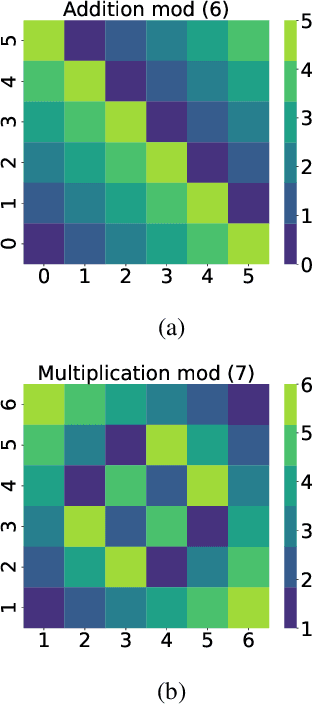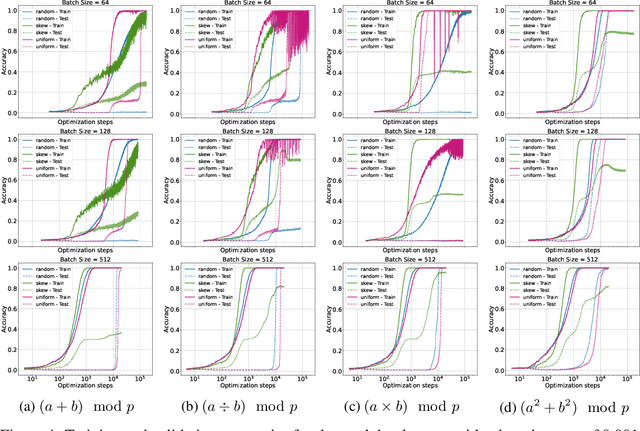Mechanistic Insights into Grokking from the Embedding Layer
Paper and Code
May 21, 2025



Grokking, a delayed generalization in neural networks after perfect training performance, has been observed in Transformers and MLPs, but the components driving it remain underexplored. We show that embeddings are central to grokking: introducing them into MLPs induces delayed generalization in modular arithmetic tasks, whereas MLPs without embeddings can generalize immediately. Our analysis identifies two key mechanisms: (1) Embedding update dynamics, where rare tokens stagnate due to sparse gradient updates and weight decay, and (2) Bilinear coupling, where the interaction between embeddings and downstream weights introduces saddle points and increases sensitivity to initialization. To confirm these mechanisms, we investigate frequency-aware sampling, which balances token updates by minimizing gradient variance, and embedding-specific learning rates, derived from the asymmetric curvature of the bilinear loss landscape. We prove that an adaptive learning rate ratio, \(\frac{\eta_E}{\eta_W} \propto \frac{\sigma_{\max}(E)}{\sigma_{\max}(W)} \cdot \frac{f_W}{f_E}\), mitigates bilinear coupling effects, accelerating convergence. Our methods not only improve grokking dynamics but also extend to broader challenges in Transformer optimization, where bilinear interactions hinder efficient training.
 Add to Chrome
Add to Chrome Add to Firefox
Add to Firefox Add to Edge
Add to Edge